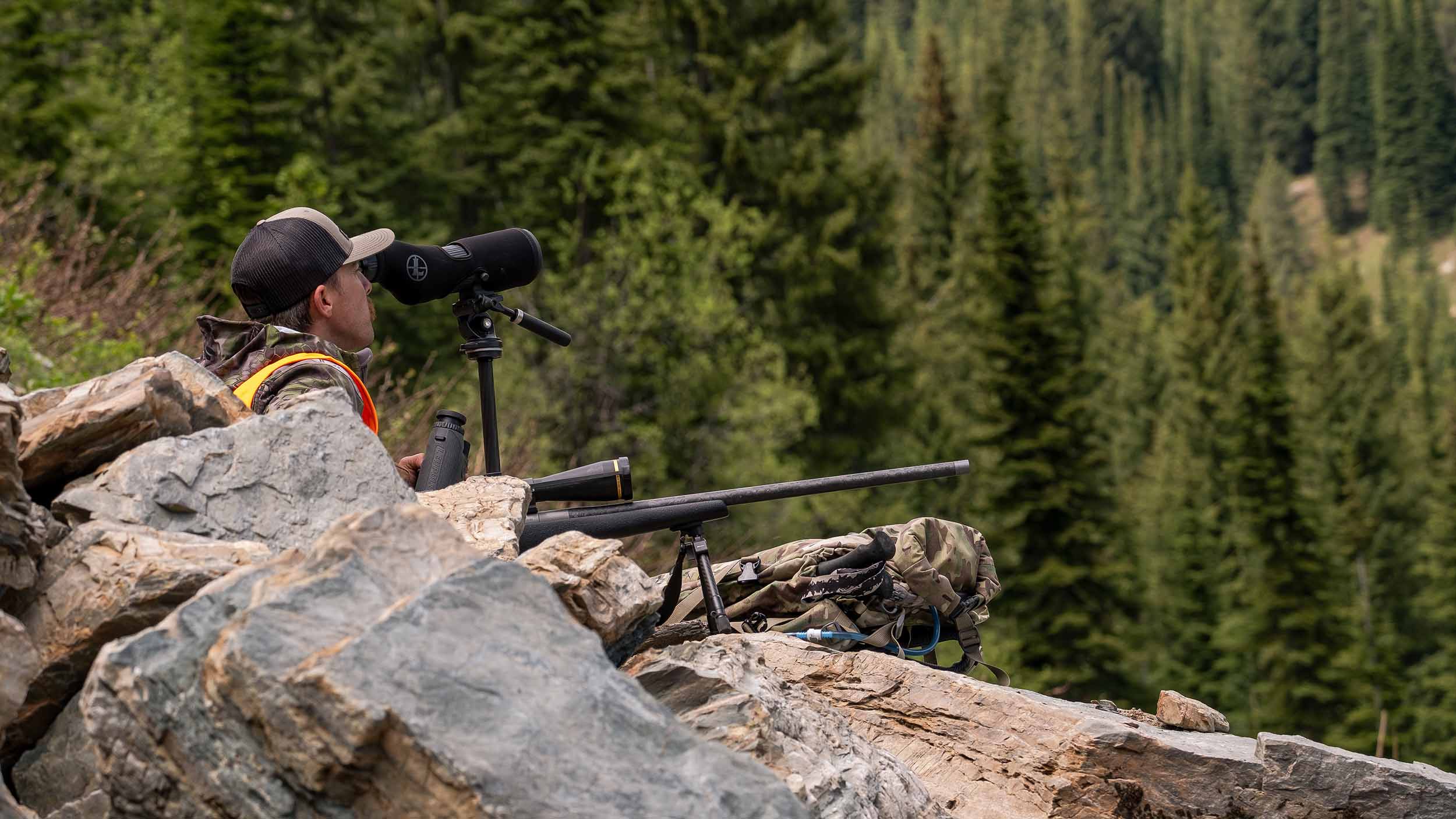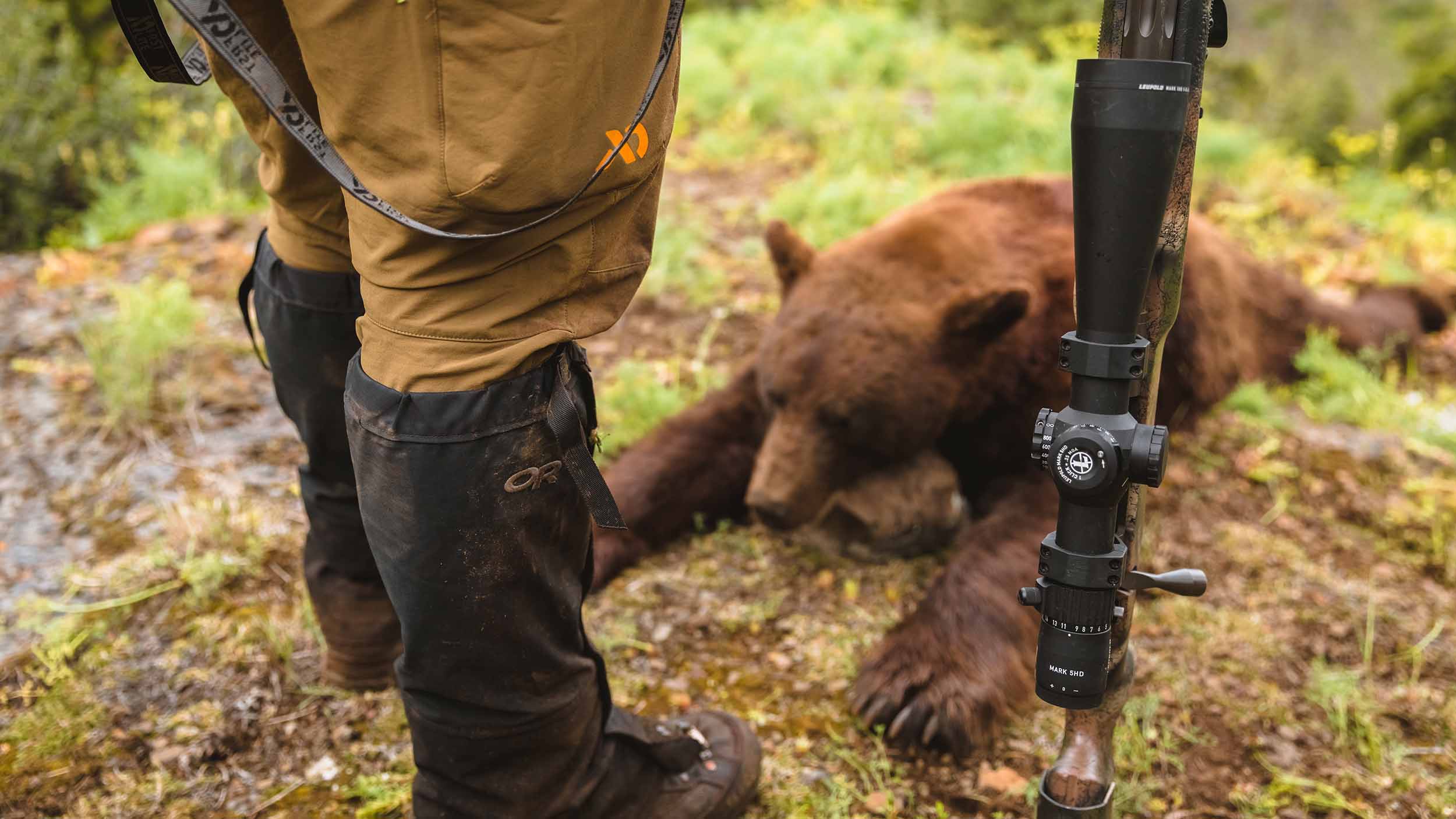How To Clean Your Spotting Scope
How To Clean Your Spotting Scope
Our optics are built for a lifetime of performance, guaranteed. But with all this extended use in rugged conditions, we know they are bound to get dirty. Unlike your rifle, your spotting scope doesn't need regular maintenance. In fact, your spotting scope should be cleaned as little as possible, or only when you see a problem. In this article, we break down when and how to clean your spotting scope properly to help make sure it performs at the highest level.
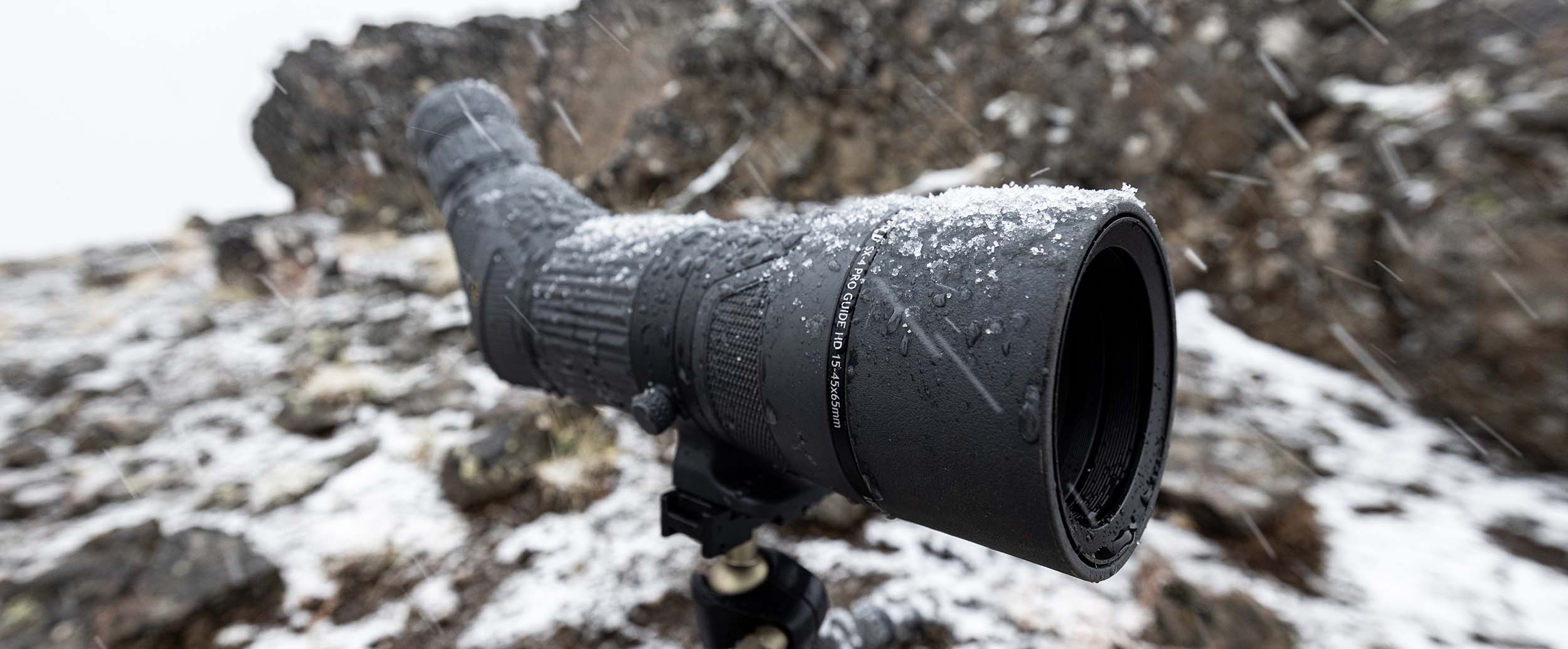


How Often Should I Clean My Spotting Scope?
If it’s not dirty, don’t clean it! You should clean your spotting scope only when you see a problem or it affects your visibility. The body of your spotter can be wiped down periodically, but the lenses require special handling.
Minor dust or debris on the exterior of the lenses is extremely unlikely to obstruct your view, so cleaning them should only be done when necessary. Dust on the eyepiece lens (closest to your eye) of your spotting scope will be more noticeable than dust on the objective lens, therefore the eyepiece lens will likely require more frequent cleaning. But a few specs of dust on the objective lens will be harder to see and can usually be left alone. We recommend always using lens covers to help keep dust and other debris off the glass.
What Cleaning Products Should I Use?
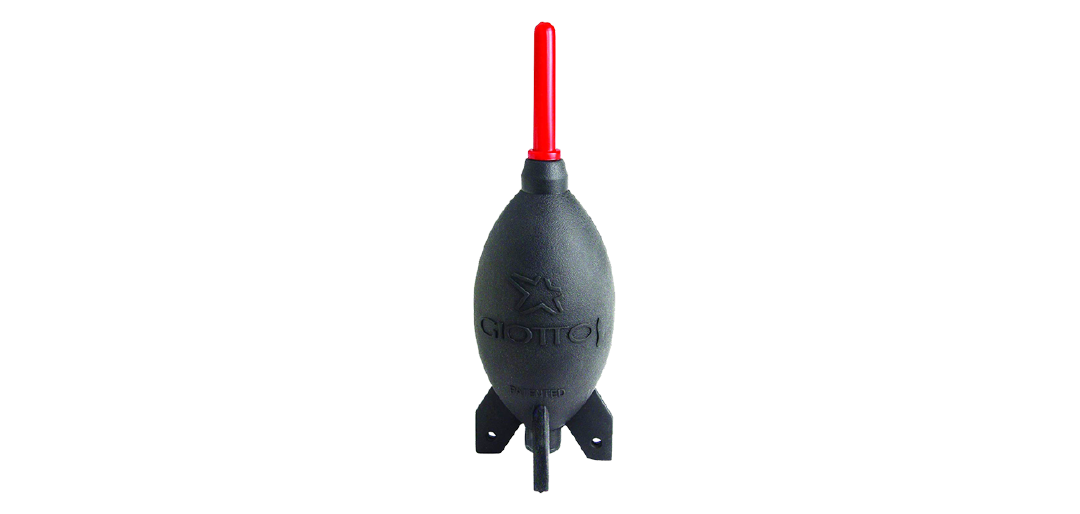


Compressed Air
Most dust and debris can be removed by blowing the optic with compressed dry air. A portable blower like the Giottos Rocket Air Blaster makes a great addition to your field kit.
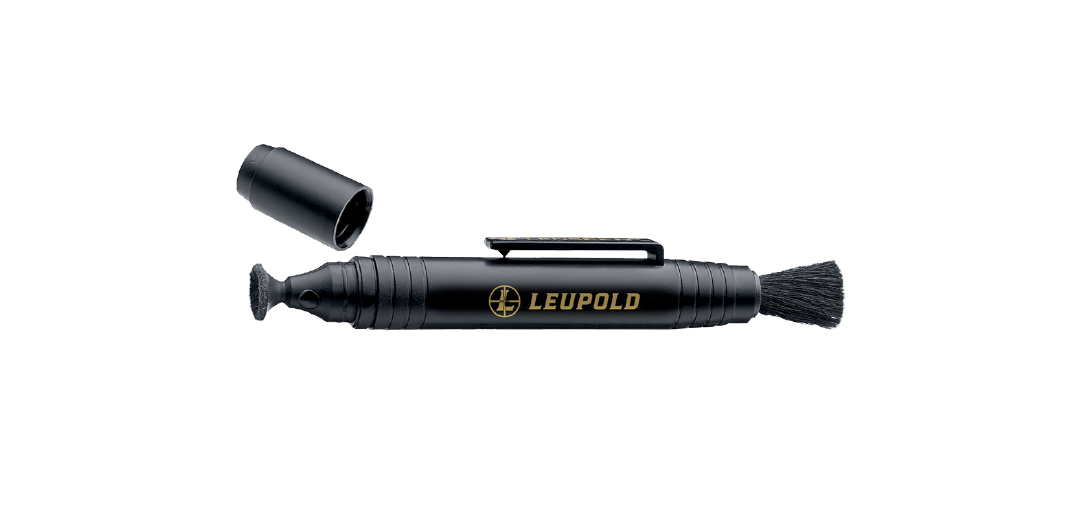


Lens Brush
Use a soft lens brush like our Leupold Optics Lens Pen to gently sweep away any particles on your spotter.
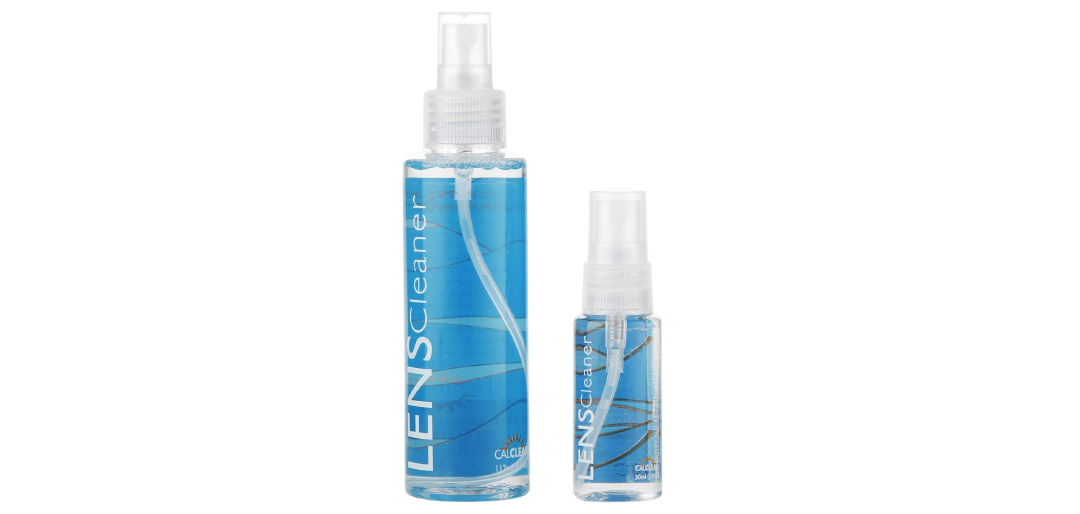


Cleaning Solutions
Water is the safest liquid to use (when needed) for both the body and the lenses. A generic eyeglass cleaner or 90+% isopropyl alcohol can also be used to clean the lenses, as they dry faster than water. If there are some hard-to-clean spots on the body of the optic, a simple degreaser like 409 works well (do not use that on the lenses).
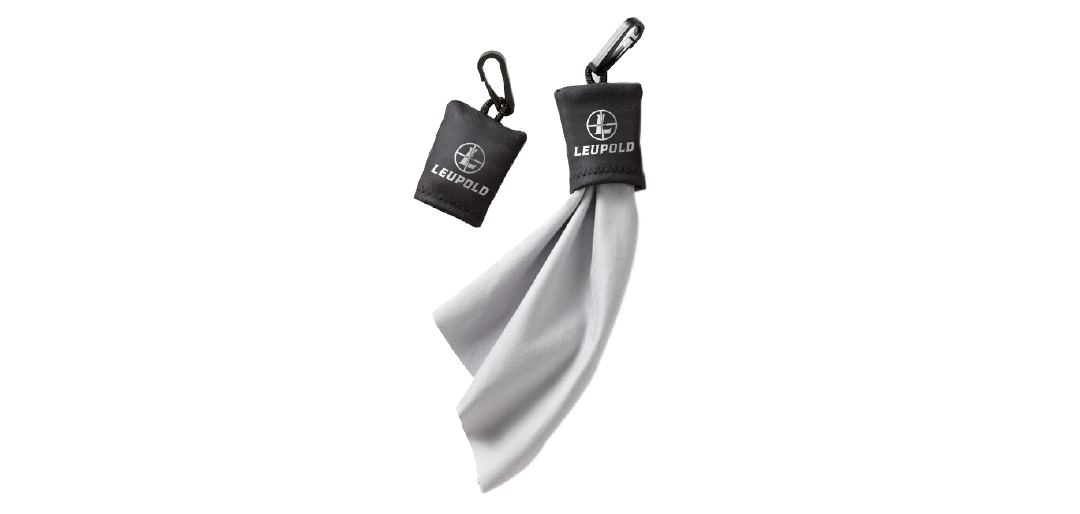


Microfiber Lens Cloth or Cleanroom Swab
A lint-free microfiber lens cloth or cleanroom swab should be used sparingly. Even a soft cloth can scratch lenses if debris are not cleared away first. Always use one continuous motion when wiping with a cloth or swab.
Steps For Proper Cleaning
1. Clear Away Large Particles
Always start your cleaning by clearing away large particles of dust or debris from your spotting scope using compressed air or a soft lens brush.
2. Wipe Down The Body
With a soft towel or cloth, use some water to wipe down the body of the spotter. There may be times when dirt builds up on moving parts; especially if the spotter features external dials. A soft-bristled toothbrush is a great tool to remove stubborn debris without damaging the finish of the spotter.
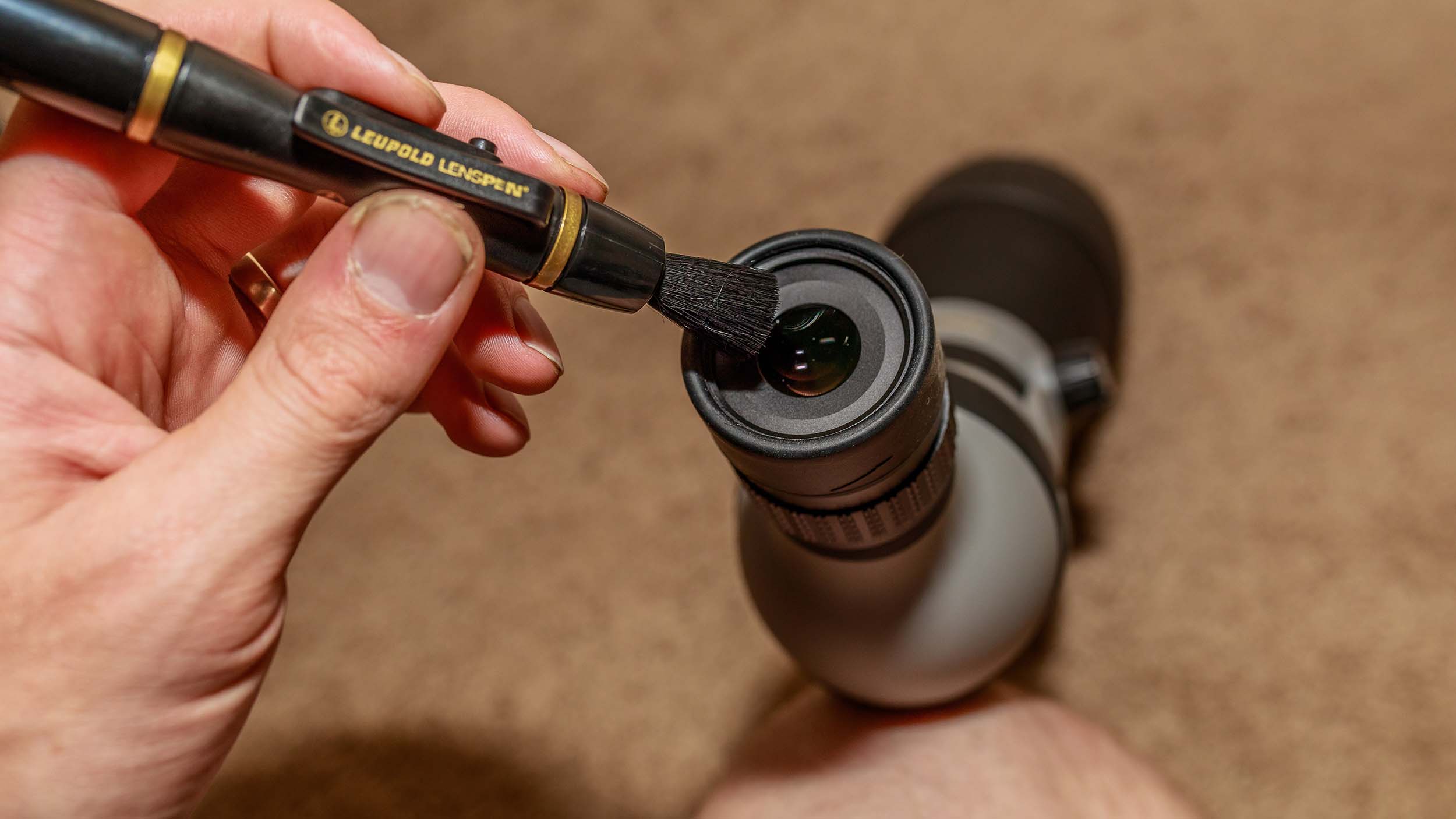

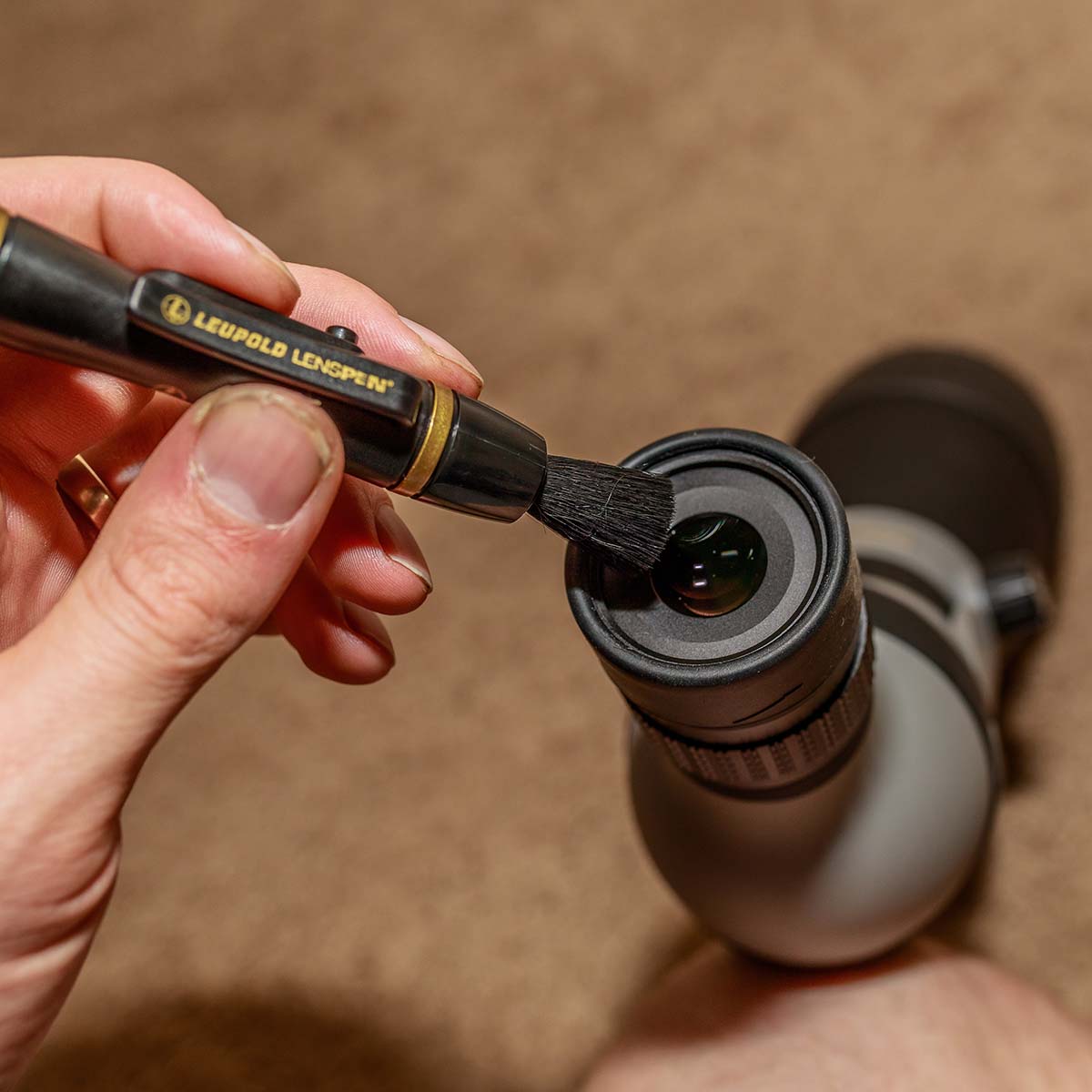
More often than not, you should be good to go after the air blower and brush cleaning, especially in the field. Remember, you shouldn't clean more than you have to. But if there are still some trouble spots, here are some additional steps you can take.
3. Wet The Lenses
If needed, wet the lenses with a generic eyeglass cleaner or 90+% isopropyl alcohol. Water may also be used, but eyeglass cleaner and alcohol will evaporate more quickly, leaving fewer water spots.
4. Wipe The Lenses
Using a soft microfiber lens cloth or cleanroom swab, wipe the lenses in a spiral pattern from the center out to the edge. This will allow any remaining particles to remain at the edge of the lens when they dry.
5. Allow To Dry
Give your spotting scope time to air dry before repeating any of the steps above.
What Not To Do
- Never use any kind of lubricant.
- Never use abrasive cleaning materials like acetone.
- Never use coarse cloth or t-shirts to wipe your lenses.
- Never unscrew any part of the spotting scope that isn’t intended to be removed by the end-user.
By following the steps outlined in this article, you can ensure your spotter will always perform at the highest level. Every Leupold spotting scope is backed by our Lifetime Guarantee, so if extra cleaning needs to be done or other issues arise, our Product Service Department is available to assist you. Please visit our warranty page for more info on processing a warranty request.
Recommended For You
Leupold spotting scopes are designed to help you see more in a variety of situations, but it can be hard knowing which is right for you. Find out how to choose the right spotting scope for you.
Spring is here, and with it comes new opportunities to get outside and explore. The right gear can make all of the difference. If your next pursuit is for a four-legged bruiser, here are some essential tools that will help you tag out early, so you can save a couple more days for your next spring adventure.




